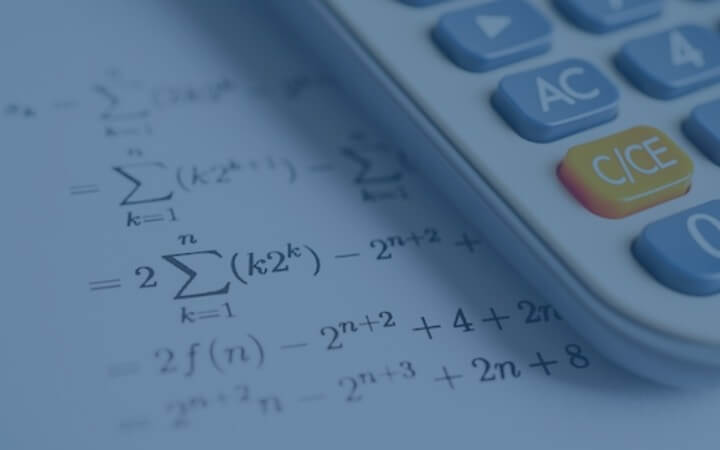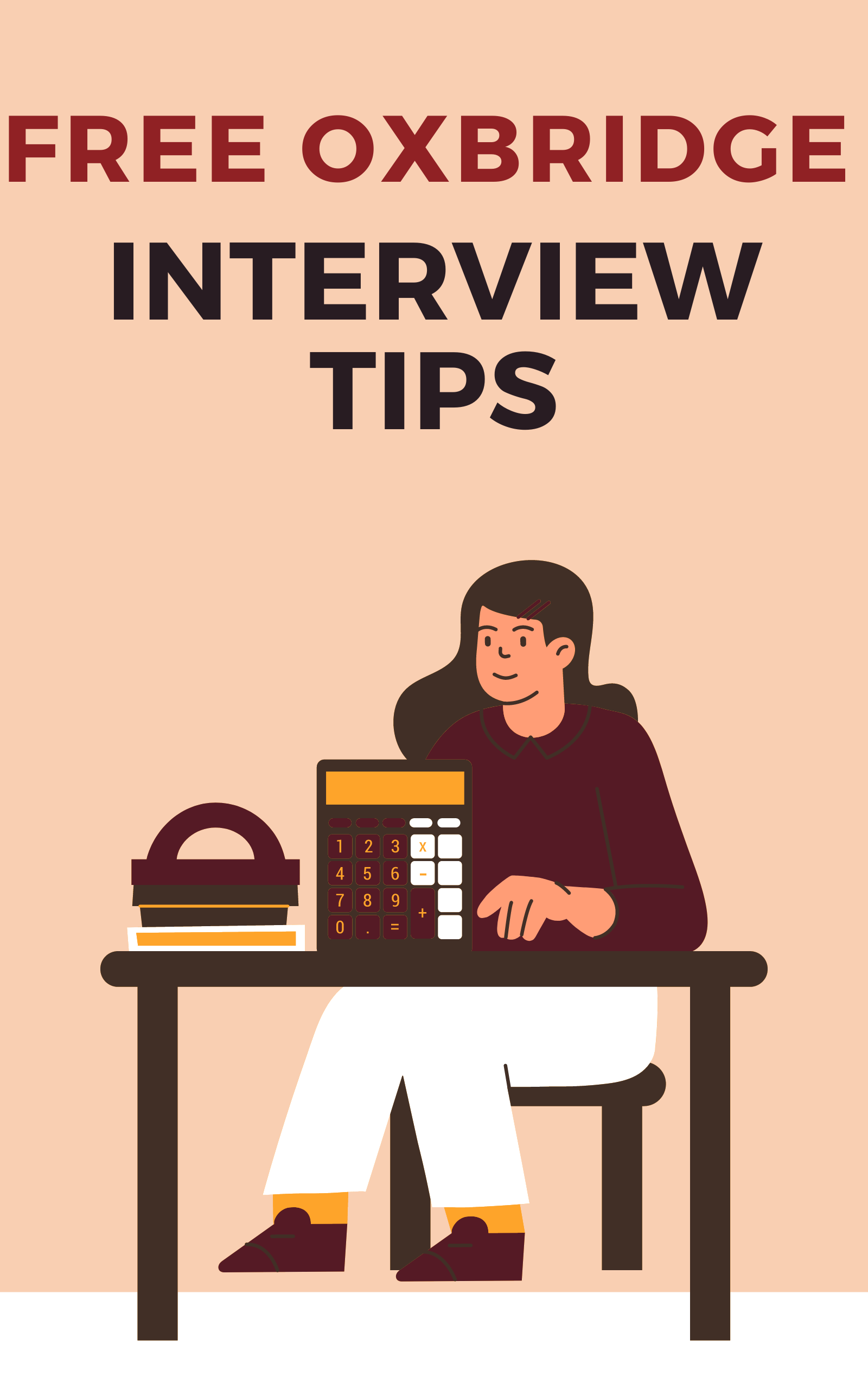This article guides candidates you how to best prepare for the Oxford Maths interview. There are guides on past Oxford Maths interview questions, interview tips, mock examples and real experiences from students who have sat the Oxford Mathematics panel interview.
This article has been made from a collection of accounts from Oxbridge applicants.

What is the Oxford Mathematics Interview structure?
Generally, interviewees will have one or two interviews at their first college (which will most likely be their chosen college, if they specified a preferred college in their application), along with at least one additional interview at another college. All of the interviews will take place over 3 days.
Each interview will be around 25 minutes long, and almost all the maths interview questions Oxford tutors will ask will be mathematical. The interviewers’ aim during the interview is to see how your thought process works when you do mathematics and think through mathematical problems.
Candidates may be given a short pre-interview task to do, so that they can be asked related Oxford interview maths questions and discuss answers in the interview. Whether this happens will depend on the college that candidates are interviewing at, and they will be informed of it in advance.
If candidates are applying for a joint course like Maths and CS or Maths and Philosophy, they will most likely have separate interviews for each subject. Though in some cases, they could have tutors from both subjects sitting in on one interview. They’ll be informed if this is the case when they are invited to interview.
What are the Oxford Mathematics interview dates?
Most of the interviews for Oxford Mathematics will take place the first two weeks of December. International applicants will follow a similar timeframe. Candidates will be informed of the exact interview dates when they are invited to interview.
If the interview is held online, candidates will also need another device (preferably a tablet, but a phone may be ok) that they can write on. This is because they will likely be using a Miro whiteboard to show your working to Oxford University maths interview questions to the interviewers.

Example Maths Oxford Interview Questions
- General Oxford Math interview questions:
- Why have you applied to study mathematics at university?
- Why do you want to come to Oxford?
- Is there anything you would look forward to studying here if you gained an offer?
Specific Oxford interview questions Oxford
- Connecting points: You have n points on the plane. Can you show me a way to connect them in a closed circuit using line segments, so that the circuit doesn’t intersect itself? For a past applicant, this initial question eventually led to the question “prove that the sum of two diagonals is greater than the sum of any two opposite sides, using the triangle inequality”.
- Nilpotent matrix: Here is a matrix. Can you find the value of n for which An=0.
- Ladder: A ladder’s middle rung is painted a different colour on the side (when we look at the ladder side on, we can see the different colour). I lean the ladder against a vertical wall, with its feet on the ground. If the ladder falls to the floor, what shape will the middle rung trace?
- Covering a grid: How many ways can I cover a 2 x n grid with 2 x 1 tiles?
- Equilateral triangle: I have the parabola y=x2. The points A, B, C, all lie on the parabola, with B being the origin. A lies to the left of B, while C lies to the right. Where can I put A and C so that the triangle ABC is equilateral?
Further Oxford Maths Interview Questions
- Questions on differentiation and integration
- Questions on trigonometry and trig identities (sin, cos, tan)
- Questions asking you to sketch various curves
- Factorial: How many ‘0’s are there in 40!
- Dice game: I play a game against my friend. We each take turns to roll a die, and we win if we roll a 6. What is the probability that I win?
- Covering a chess board: I have a chess board, but two of the corner squares have been removed. Is it possible to cover the board with dominoes if the two squares removed are adjacent corners? What if they were diagonally opposite corners?
- Cutting pizza: How many pieces of pizza can I get from n cuts?
- Pythagoras: Can you prove Pythagoras’ Theorem?
- Birthdays: There are 40 people in a room. What is the probability that 2 of them share a birthday?
- Questions based on A-level mechanics and statistics
- Questions on geometry
- Painting a cube: I have a cube that I want to paint with 6 different colours, painting each side a different colour. How many different ways can I paint the cube? What if I had n colours instead?
- Roots: Prove that root 3 is irrational.
- Pepper game: My friend and I are playing a game where we take it in turns to eat hot peppers. 6 of the peppers are mild, and 2 are hot. I want to avoid eating the hot peppers. What is the probability that I eat a hot pepper if I go first? Is it a disadvantage for me to go first? What if there were instead 7 mild peppers and 1 hot pepper?
Jesus College, Oxford has a sample Oxford interview maths questions on their Youtube, which can be helpful to see some questions being worked through:
Insider Guides: Oxford Mathematics Interview
What happens on the day of your Oxford Mathematics interview?
All of my interviews were online, and they were around 30 minutes each. I just joined the online meeting a few minutes ahead of the start time, and was let in on time for my interviews.
What do you have to bring to your Oxford Mathematics interview?
Since the interviews were online, I was required to have a graphics tablet or a writable digital surface available, so that we could collaborate on a digital whiteboard and they could see my workings.
I would also recommend having pen and paper on hand, so that you can easily do rough work or make notes on the questions being asked.

What is the interview setting and how long is it?
It was over Microsoft Teams. There were two tutors present in each Mathematics interview, and they had some papers in front of them to look at during the interview. Each interview was about 25 minutes long, with 5 minutes at the beginning for introductions.
What are the Oxford Maths interviewers like?
All of my interviewers were very friendly. One of them was a bit pushy when I got stuck on one of the problems, but the others were all patient and eagerly listened to what I had to say, helping me when I got stuck on certain maths Oxford interview questions.
I had some interviews at St John’s, which were all based on follow up Oxford math interview questions. They would start with simple questions, then build on top of those base questions with further, more complicated, questioning. They also asked me some extra follow up Oxford interview maths questions based on what I had said in my answers to previous parts. I was also interviewed at St Anne’s, where they only asked about 5/6 short mats Oxford interview questions, without any follow up questions.
What are the best tips for planning my trip for my Oxford Maths Interview?
I can’t give advice on planning a trip to Oxford, as my interview was online – but yours will be online too, so you don’t have to worry about that! I’d say, in terms of planning for the few days, you should make sure you get enough sleep and eat well. You should also wear whatever you feel comfortable in, and that is presentable. Don’t feel like you have to wear a suit. A nicely ironed shirt, a jumper, or even a T-shirt would do just fine!
Are there any academic or challenging Mathematics questions at the Oxford Interview?
The majority of the maths interview questions Oxford tutors asked me during the interviews were challenging mathematical questions. They were all based around A-level material, but I was introduced to some new ideas and tested to see how well I could pick up new information and apply it.
Are there any personality, work experience or extracurricular based Mathematics questions at the Oxford Interview?
They asked me about my participation in maths olympiads, which I had mentioned in my Oxford maths personal statement. The question was something like: “we see you’ve participated in the IMO before, can you explain the journey of this experience to us?” I also mentioned in my personal statement that I had studied a little bit of linear algebra and measure theory, so they asked me how much I had studied for these topics and how I went about doing so.
Top Tips for the Oxford Maths Interview
- You should practise speaking your thoughts out loud when solving problems. It would be useful to do Oxford Maths interview preparation, even if just with a friend or family member, so that you can practise vocalising your thought process – this is the key to performing well in your interviews.
- If you get stuck during the interview, don’t just sit silent and think to yourself. Keep communicating with the tutors – tell them what you’re thinking and why those ideas aren’t working. This means that they can help give you hints, and they can see how your brain is working on the problem. You don’t have to get everything right, you just have to show that you have the ability to learn and excel in the Oxford Mathematics course.
- Remember that it’s okay to ask for help if you get stuck. Just ask if they can give you a hint, and they’ll be more than happy to help you.
- Relax! The tutors are super friendly, and they will try their best to make you feel comfortable. They are not there to gauge how much you know from high school, they are there to see if they would enjoy teaching you for the next 3/4 years. So do your best to communicate, and try to feel at ease.
- Make sure you understand the question properly before you start working on them. If you have any trouble understanding, or any questions, don’t hesitate to ask the tutors.
Top Tips for the “Why Oxford” interview question
I don’t think your answer matters as long as you are sincere about your reason – so find a few things about Oxford and about the Oxford Mathematics course in particular that genuinely make you want to attend university here! Perhaps it is the tutorial system, perhaps it is a few particular modules that are offered here, perhaps you really want to be in an institution surrounded by other students all as passionate about your subject as you are.
My Favourite Things about Studying Mathematics at Oxford University
I study Maths and Computer Science as a joint degree, and I really love studying both subjects at Oxford. I think it gives me a lot of flexibility about what I want to study, and I get to choose my favourite parts from each subject!


